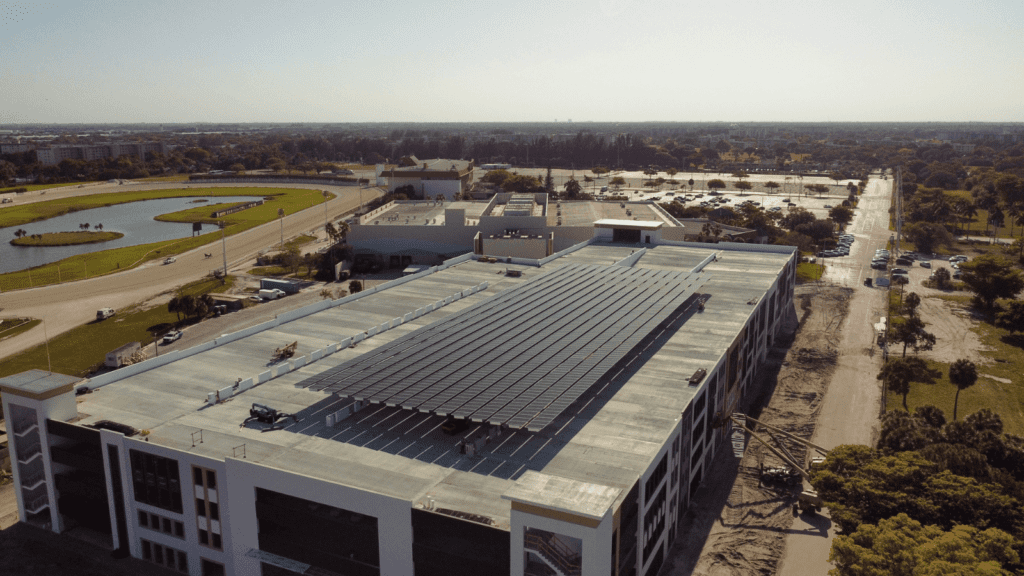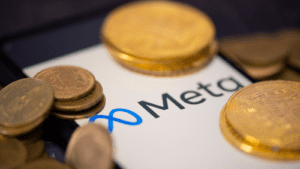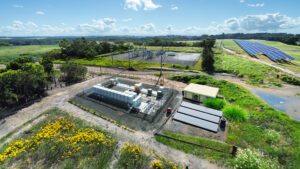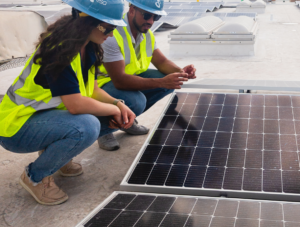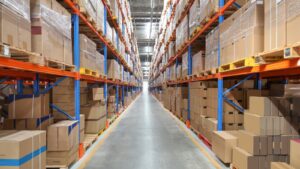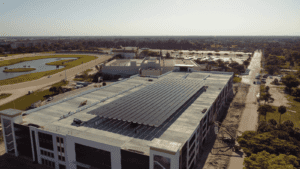Businesses across industries are embracing the benefits of commercial solar energy. Roftop solar leasing, in particular, is gaining significant traction as a viable option for investing in renewable energy.
This model offers businesses a cost-effective and sustainble path towards achieving esg goals, reducing operational costs, and enhancing brand image.
What is rooftop solar installation?
Rooftop solar installation involves mounting solar panels on the roof of a building to capture sunlight and convert it into electricity. It’s a popular choice for commercial buildings because it gives them the opportunity to optimize unused roof space.
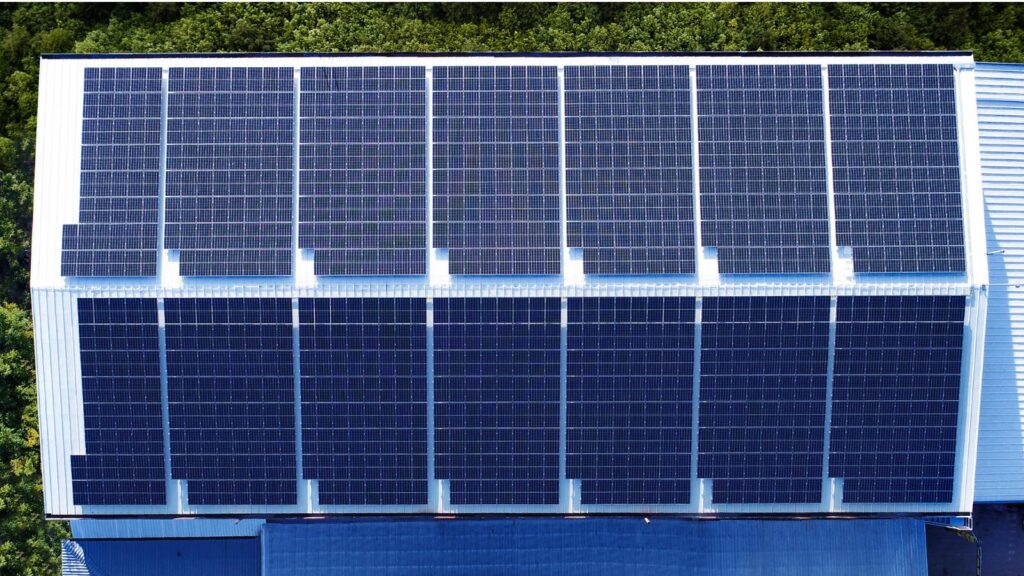
Why should business owners consider leasing their rooftop space for solar?
Solar investments are more common than ever. With the upbringing of ESG the leading topic of conversation in the commercial space today, business owners look to solar as a way to not only aid them in reaching the carbon reduction goals but also add another revenue stream.
Business owners have the option to choose from three different pathways when pursuing a solar investment – direct ownership, third-party ownership (leasing their rooftop space), and community solar.
Third-party ownership is a smart financial move for property owners because it gives them the flexibility to skip paying the upfront investment when choosing to install on-site. Instead, the lease can be a big one-time payment or a smaller annual payment over the lease period.
What are the financial benefits of leasing versus owning solar panels?
Leasing solar panels offers several advantages.
There are no upfront costs as the company covers all expenses, allowing you to have solar panels without any initial payment. The leasing company takes care of maintenance, including repairs and upkeep during your use of the panels.
Unlike a loan, you’re not required to gradually repay the cost over time, and if your energy savings exceed your monthly expenses, you end up saving money without a specific payback period.
Owning solar panels comes with certain drawbacks to consider.
The upfront cost of purchase and installation of solar panels can be substantial, which could discourage individuals because of financial limitations. Maintenance also becomes your responsibility, which can add up over time.
As technology improves, your panels might become outdated, and you could miss out on efficiency improvements. Administrative tasks like permits and paperwork also fall on your shoulders.
While solar panels can enhance property value, they might not offer a full return on investment if you sell before recouping costs. Securing financing could also pose a challenge for most.
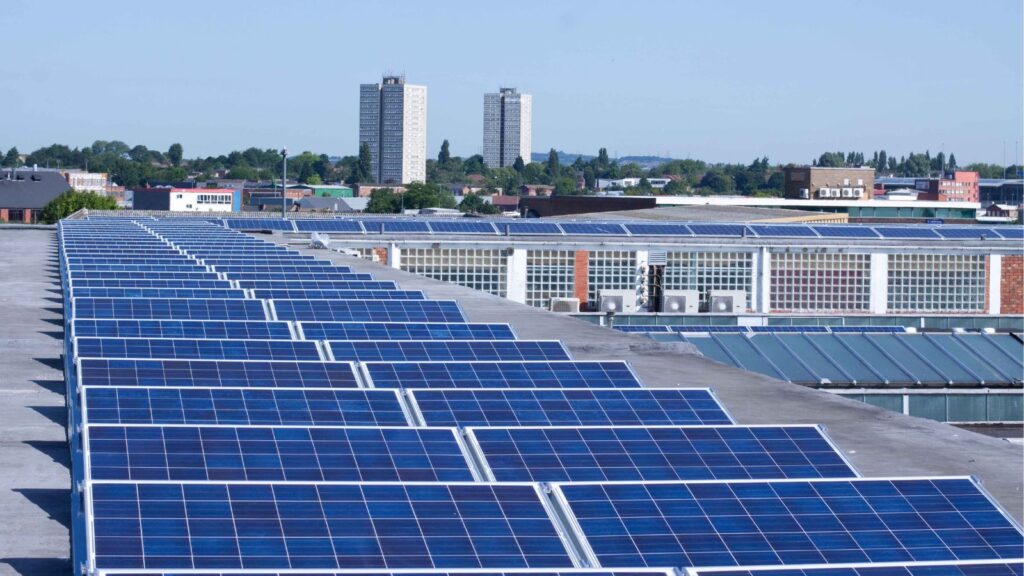
How can a business assess if its rooftop is suitable for solar?
When contemplating solar panel installation for commercial buildings, several critical considerations come into play.
Ensuring the structural integrity of the building’s roof is a foremost concern. If the roof is aged or damaged, it may be necessary to replace it before installing solar panels because solar panels have a lifespan of 25 to 30 years. It’s essential that your roof can support the weight of the panels for the duration of their lifespan.
Also, think about how the building looks – if it’s designed in a special way or has a strange shape, it might affect where the solar panels can go.
What are the common terms and conditions of a solar lease agreement?
A Solar Panel Lease Agreement includes common terms. At the start, it states the monthly payment and lease duration. It might also cover extra costs, such as an upfront payment or early termination fees.
Next, the roles of both parties are detailed. The company handles the installation and maintenance of the solar panels while ensuring property access and panel protection fall under your responsibility.
Finally, the agreement could mention the chance to transfer the lease to a new owner during property sales. It might also discuss buying the solar panels after the lease term ends.
Here are some questions that commercial business owners ask before leasing their rooftop space.
How will my roof be impacted by the installation?
If installed correctly, a rooftop solar installation will not negatively impact a building. The main concerns that building owners have about PV systems are the potential impact PV may have on roof integrity such as business operations, building permits, and roof warranties; however, all of these concerns can be minimized or eliminated.
Will pv installation impact roof drainage?
No, a reputable solar installer will take into account the roof’s drainage system and ensure that the installation will not be negatively impacted. It is important to discuss any concerns about roof drainage with your solar installer before the installation process begins.
How are pv panels attached to the roof?
There are two primary mounting methods for PV systems on the roof of a commercial building are ballasted racking and attached racking. Ballasted racking uses heavy objects, typically concrete blocks, to secure the solar system to a flat roof.
For the attached racking solar system, the racking is mounted to the roof while the panels are securely fastened to the rack.
How will a rooftop pv system hinder a firefighter’s ability to extinguish a fire?
No, your solar installer should be aware of the fire codes that need to be followed, according to the state that the building is located. Therefore, the installers will design a solar system according to those codes to ensure that there is no fire risk and that if needed, a fire can properly be extinguished without issue.
Who is responsible for the code compliance of my roof?
The solar installer will be responsible for designing and installing the PV system in line with applicable building codes under a third-party ownership agreement. The solar installer will generally collaborate with the original roof manufacturer for a specific building to ensure that the PV system is installed in a way that does not void the roof’s warranty.
After the PV system is installed, the roof manufacturer will verify it to ensure that it fulfills the approved design and that the roof guarantee is still valid. Any roof damage sustained during installation is usually covered by the solar installer’s workmanship warranty. Prior to installation, building owners should confirm that a solar contractor gives a proper workmanship warranty.
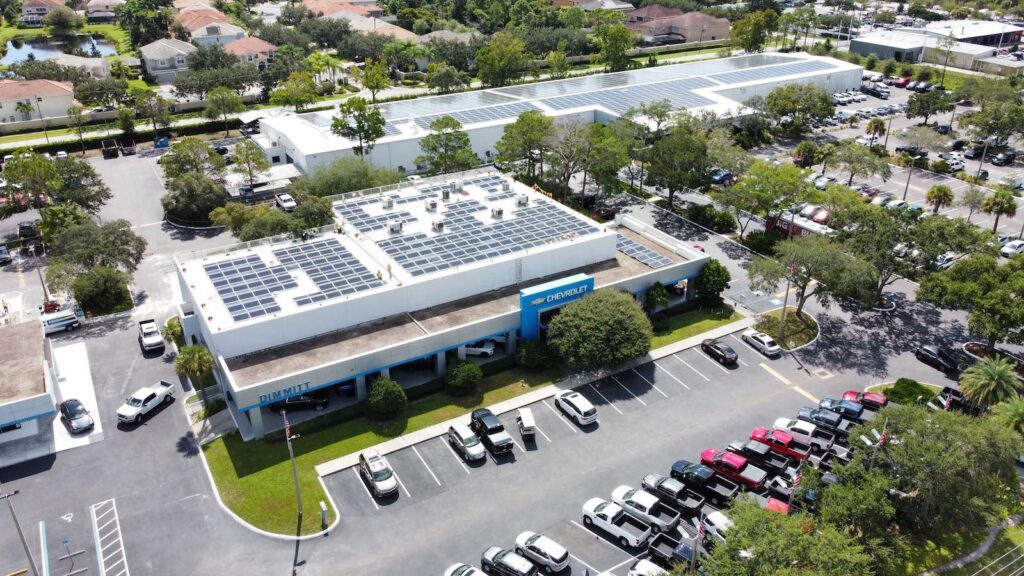
What is the environmental impact of commercial solar panels?
Businesses that choose to install commercial solar panels on their commercial and industrial buildings are actively incorporating solar energy into their energy sources.
This decision not only cuts down on greenhouse gas emissions but also aids the shift towards a greener economy with fewer carbon emissions. Installing solar panels on structures like self-storage facilities, hospitals, auto dealerships, and cold storage facilities not only saves money but also plays a role in fostering a cleaner environment.
Ready to empower your business with renewable energy?
Contact ESA today to explore the best solar leasing options tailored to your business.
Sources:
- https://www.marketwatch.com
- https://oyarenewables.com
- https://colitetech.com/blog/commercial-rooftop-solar-common-technical-concerns/
- https://www.365pronto.com/blog/commercial-rooftop-solar
- https://www.solarpowerworldonline.com
- https://www.contractscounsel.com
- https://www.solarreviews.com/blog/solar-lease-everything-you-need-to-know
- https://blogs.scientificamerican.com
